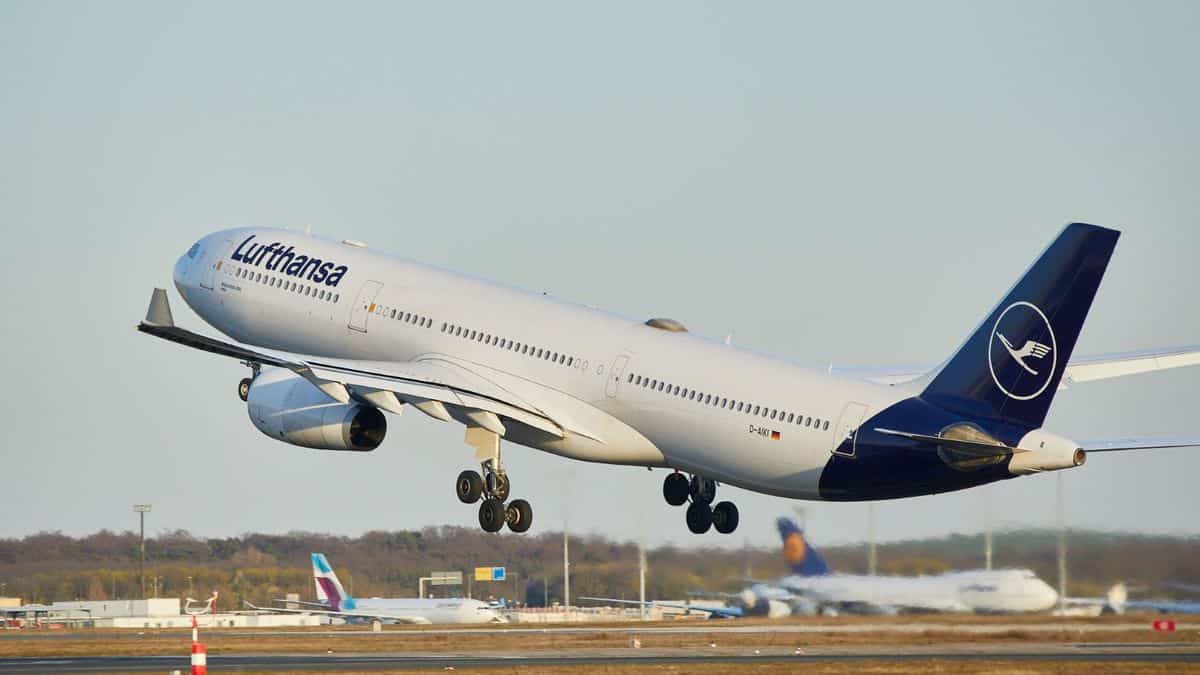After fully privatizing Deutsche Lufthansa AG (FWB: LHA) early a quarter-century ago, the German government will become a minority owner in an effort to rescue the country’s largest airline from economic devastation wrought by coronavirus travel restrictions.
The airline group, which includes Lufthansa Airlines, SWISS International Air Lines and Austrian Airlines, agreed Monday to a 9 billion euro ($9.8 billion) bailout package in which the federal government will receive a 20% stake in the company in return for two board seats and veto power over any hostile takeover bid. Lufthansa agreed to limit dividends and management pay.
The government will also give Lufthansa 5.7 billion euros in nonvoting capital, part of which could be converted to an additional 5% stake in the event of a hostile takeover or the company is unable to make coupon payments. The loan carries interest of 4% through 2021 and increases to 9.5% by 2027.
Lufthansa will separately receive a 3 billion-euro three-year loan from a quasi-private lender and private banks.
Germany said it planned to sell its shares by the end of 2023.
The deal, which is designed to preserve thousands of jobs, still requires approval by Lufthansa shareholders and the European Commission.
Lufthansa has been negotiating for weeks with the government on an emergency aid package. Meanwhile, it has taken drastic self-help measures such as slashing about 95% of its schedule, encouraging workers to take unpaid leave and accept fewer hours, cutting training, decommissioning aircraft, terminating aircraft operating leases with third-party carriers, and halting other discretionary expenses. It also is converting passenger planes for dedicated cargo operations to earn revenue.
The German aid represents the largest rescue for any airline so far. The U.S. government has approved $25 billion in direct grants for domestic passenger carriers to prevent involuntary furloughs through September, with another $25 billion in loans also available. American Airlines is the largest recipient of U.S. aid at $5.8 billion, followed by Delta Air Lines at $5.4 billion.
The International Air Transport Association has estimated airlines are on track for revenue to be $314 billion lower than budgeted this year. It has urged governments to provide cash infusions, loans and tax relief for the industry, saying it is a foundational part of the global economy and will be essential to restarting economic activity once the pandemic calms down.
Some airlines are already in trouble. Virgin Australia and Latin American carrier Avianca recently filed for bankruptcy protection, El Al warns it could fold without a bailout from Israel’s government, and U.K. regional carrier Flybe has ceased operations.












Stephen Webster
I like the German model. Canada should look at taking up to a 40 percent interest in 3 smaller regional airlines plus one or two of the larger airlines. The Government would always keep at least a 10 percent interest. The deal set half in straight equity purchase of companies and the other half at 3 percent loans for 5 years then after that the rates jump to 6 percent or if no payments of loan capital repaid the government gets the second 20 percent in equity. This is a better use of government money than straight grants.